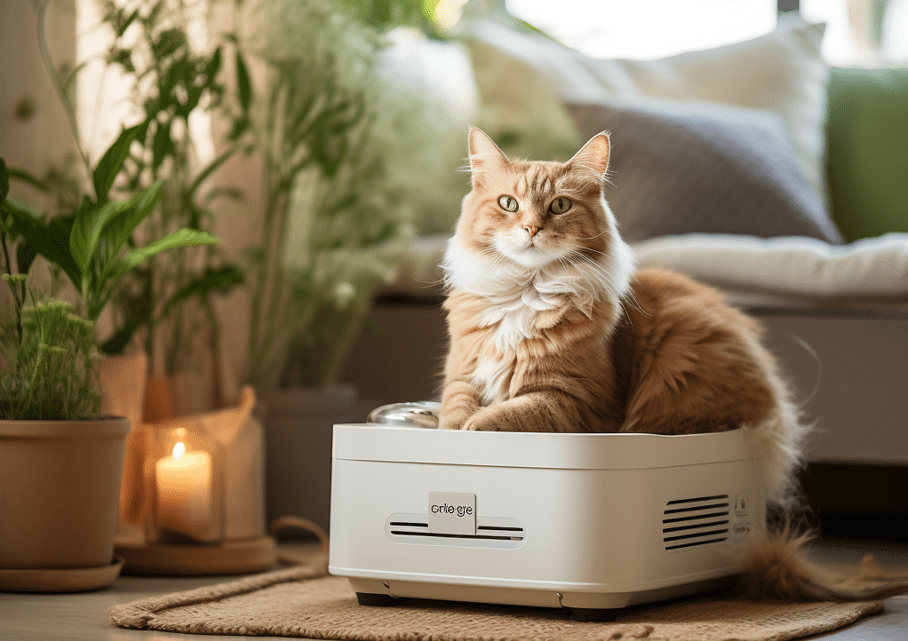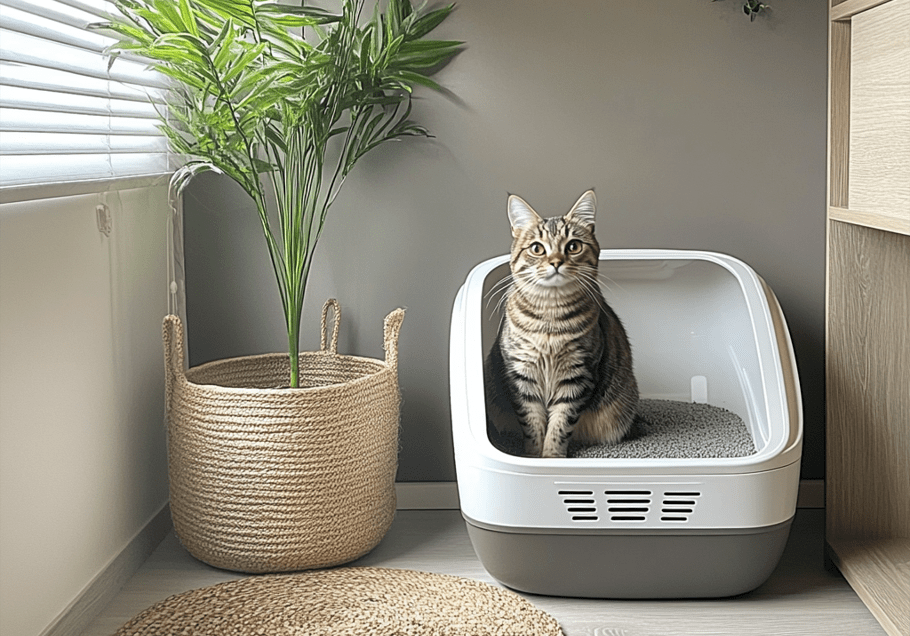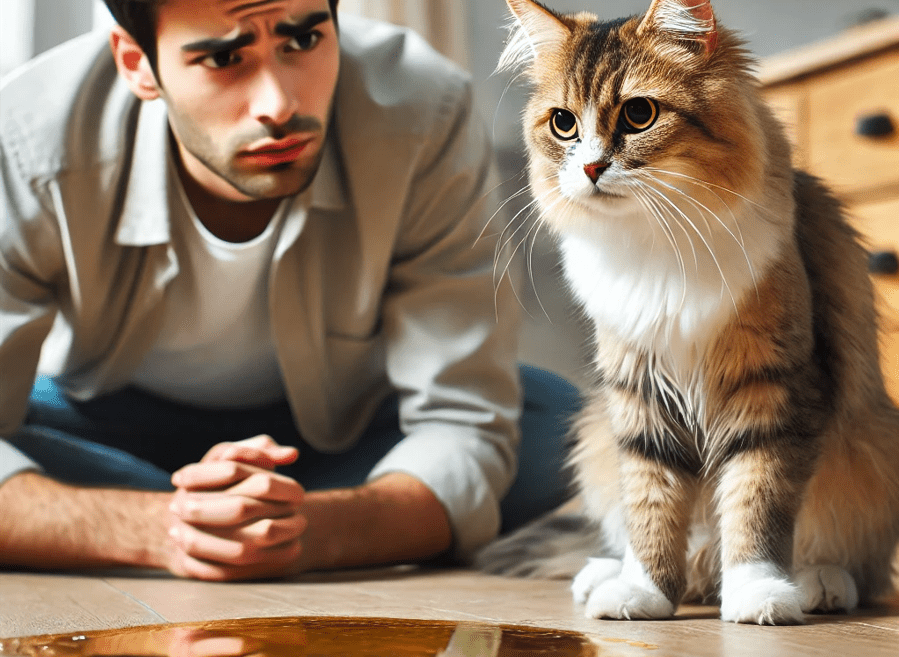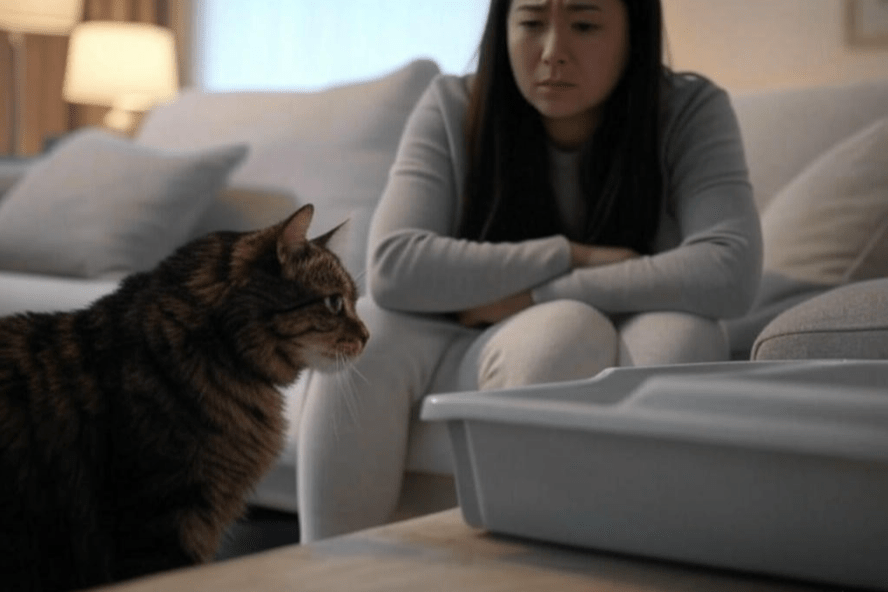
Cats maintain high standards of hygiene by choosing the security of the litter box above other options. Litter box avoidance and negative feelings become noticeable issues for cat owners just when their pets start acting this way. A caring cat owner needs to identify both behaviour and health reasons behind this change.
When you notice sudden changes in your cat’s bathroom behaviour you should determine if these changes result from stress, medical problems or changes in the environment. Through this article we will explore why does my cat suddenly hate the litter box, including known root causes and suggest practical methods to solve these problems.
Key Topics to Be Covered:
1.Introduction to the Litter Box Aversion Problem
2.Behavioral Causes Behind Litter Box Aversion
3.Some medical conditions create the problem of using the litter box differently.
4.Environmental Factors Contributing to Litter Box Avoidance
5.Explain steps to solve the problem and support your cat’s health.
6.Preventative Measures for Future Litter Box Problems
Introduction to the Litter Box Aversion Problem
Caring cat owners encounter significant distress when they discover waste outside the litter box area. The challenge creates tension for you as an owner while causing discomfort for your cat when it stops using the litter box for elimination. When your cat behaves differently with the litter box it needs attention because these behaviours suggest your pet has a health issue.
Identifying the reasons behind my cat’s sudden change in litter box behaviour helps me solve this problem. Learning the reason your cat hates the litter box helps solve both behavioural and cleaning issues at home.
Behavioral Causes Behind Litter Box Aversion
Regular litter box avoidance means your cat may react this way due to changes in habits and its surroundings instead of health issues. Behavioural aversions happen when stress triggers your cat plus adds anxiety or feelings of protecting its territory.
Stress and Anxiety
Cats react strongly to changes in their life space even when they always stick to the same routines. When your home environment shifts such as a minor move or introducing a pet into your household your cat may face stress and anxiety. The emotional stress makes them unwilling to use the litter box. A feline will hold back from using the enclosure as an area of distress when its link with new emotional challenges exists.
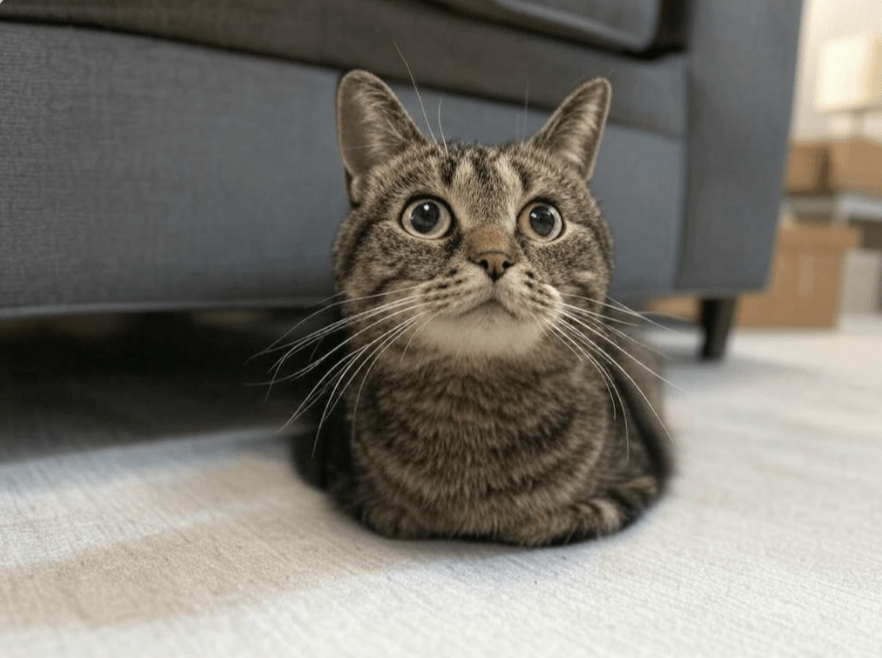
Changes in background noise or presence of unknown individuals plus new furniture elements create discomfort for your cat. When stress affects cats they prefer to steer clear of their litter box because their surroundings worry them.
Litter Box Issues
The root problem for this behaviour could actually be found in the cat litter box itself. Cats reject regular use of a litter box if it does not meet their environmental preferences. Some common issues that can cause your cat to suddenly dislike the box include:
Dirty litter: Since cats detect odours strongly they will reject a litter box that maintains poor hygiene. Regular cleaning of the box is essential because cats will naturally stay away from an unused litter box.

Type of litter: Cats show distinct preferences for selecting the appropriate litter choice. They will stop using the box entirely when they dislike the sense or texture of specific types of litter.
Size or location of the box: Your cat needs enough space inside the litter box to properly stretch its legs. Exercise should happen in an area where there is limited movement and minimal background noise. When cats encounter difficulty accessing a small noisy box they usually decide not to use it.
Negative Associations with the Litter Box
When your cat faced unpleasant events with the litter box it recalls bad memories from that experience. When your cat becomes scared or upset in the litter box from any source it may start to dislike using the box.
Medical Conditions That Can Cause Litter Box Issues
Behavioural problems most often create the issue but medical problems need full assessment when a cat stops using the litter box. Medical conditions make the litter box painful which leads the cat to refuse going there.

Urinary Tract Infections (UTIs)
A urinary tract infection serves as a main medical reason why cats refuse to use their litter box. When UTIs lead to urinate-related discomfort in cats they come to regard their litter box as the source of their pain. A negative consequence of urinary tract infections forces cats to relieve themselves outdoors due to the strong urge to evacuate.
Your cat shows UTI symptoms when it does more bathroom trips than normal combined with urinary pain and bleeding.
1.Frequent trips to the litter box
2.Straining or crying while urinating
3.Blood in the urine
4.Urinating outside the box
Seeing vet care remains necessary to confirm if your cat has a urinary tract infection and start proper treatment. A bacteria-infected bladder causes problems for cats that need professional treatment to prevent damage.
Bladder Stones
Your cat will experience severe pain from urinary tract stones that cause them pain during their natural urination process. When bladder stones create painful urination effects for cats they will tend to steer clear from using the litter box. Medical treatment, different eating patterns and surgical procedures treat bladder stones based on their severity level.
Arthritis or Joint Pain
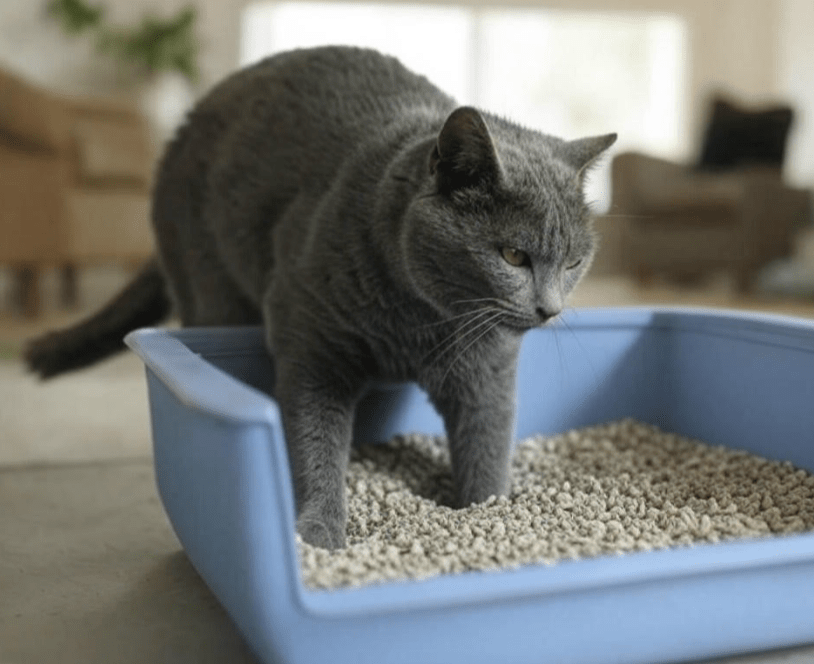
As cats become older they develop joint pain which makes it harder for them to enter litter boxes especially when the sides are elevated. When your cat skips using the litter box and shows movement problems during entry it means physical pain must be present.
Gastrointestinal Issues
Digestive health problems such as constipation or diarrhoea force your kitty to look for alternative places to go. When gastrointestinal problems in the litter box lead to pain for your cat it will start using alternative areas to go to the bathroom.
Environmental Factors Contributing to Litter Box Avoidance
Your cat may start using the wrong places for bathroom needs because neither medical nor behavioural changes explain why it stopped using the litter box and environmental variations occurred in your home. Cats need stable surroundings and small changes in their space can bring about unwanted behaviour.
Inadequate Number of Litter Boxes
You need to provide one litter box for each cat you own. Having one litter box per cat plus an additional one works as the basic recommendation for proper box use. Cats feel stressed when sharing a single litter box so they may choose to stop using the facility. Cats will eliminate beyond their box when they want to announce their ownership over specific areas.
New Pets or People

When a new animal or person arrives at home your cat feels uncertain about its security. Cats want to feel safe in their territory so when they sense another pet or person they do not know they avoid using the litter box due to stress. When cats perceive other pets using the litter box they may feel threatened and pick different spots to urinate.
Changes in the Home Environment
When you relocate your items in the home including furniture, your cat’s home environment and the place of their litter box may negatively affect their normal behaviors. Your cat will prefer to stay away from their litter box when it is placed in busy or noisy areas or appears too open to the environment.
How to Address the Issue and Ensure Your Cat’s Wellbeing
Having explained what causes this problem we need to provide effective solutions to resolve the issue. The following steps will support your cat’s needs.
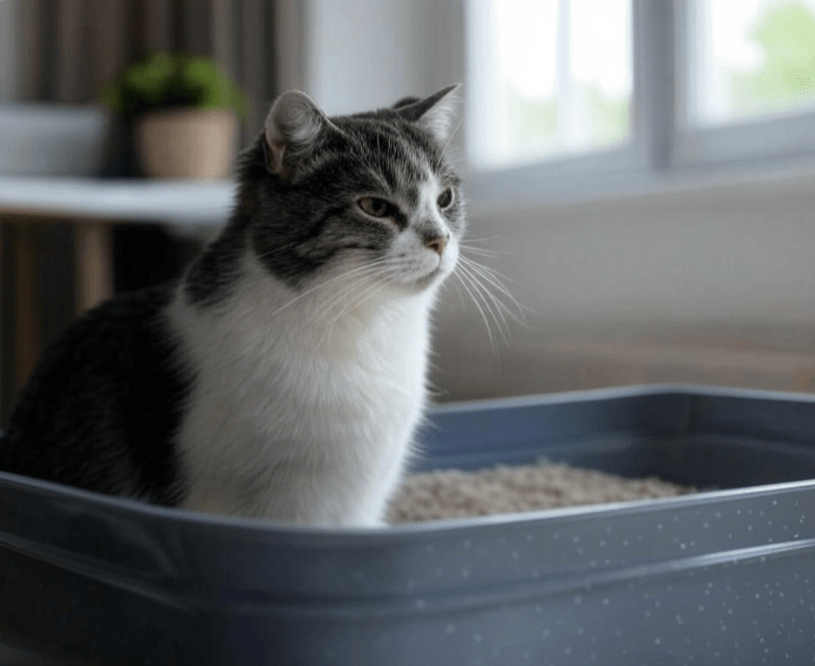
Visit the Veterinarian: Take your cat to the vet right away when you see signs like UTI symptoms or when arthritis and bladder stones affect their well-being. A veterinarian will discover the root of the issue before giving needed medical treatment.
Keep the Litter Box Clean: Regularly maintain the litter box cleanliness through proper litter replacement. A thoroughly cleaned litter box attracts your feline friend more than an unclean one.
Change the Litter Type: Test various kinds of litter to choose the one your cat responds to positively. Different cats exhibit preference between fine and large pellet types of litter.
Provide Multiple Litter Boxes: Every cat should have their own separate litter box unit for better comfort. Keep the boxes in calm sections away from heavy traffic.
Create a Calm Environment: Reduce changes around your cat while adding several spots for them to hide and feel protected.
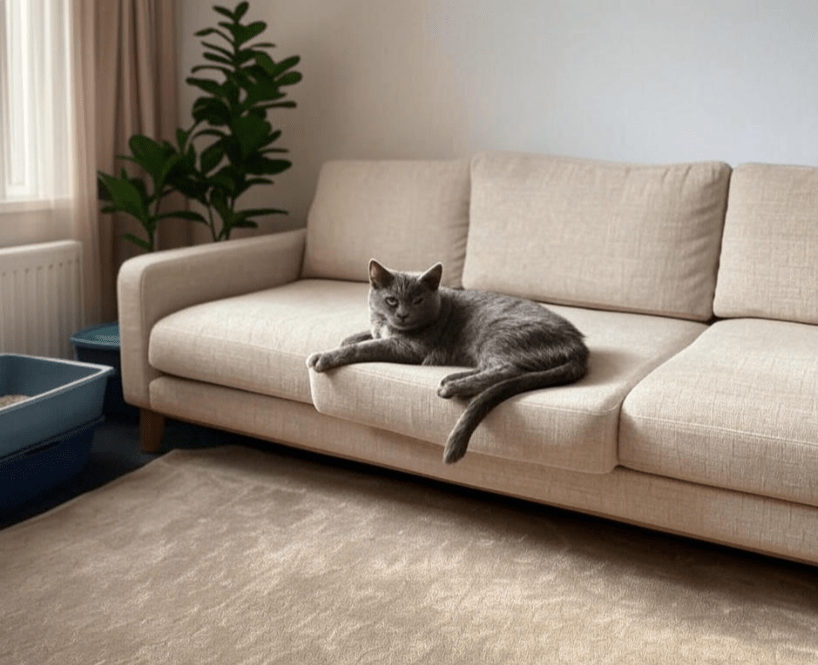
Set normal habits for your cat, clean the litter box often and choose a calm place to keep it to stop litter box rejection. Take quick action when you detect that your cat feels stressed because persistent stress can worsen the situation later.
Taking suitable actions based on how and why your cat stopped using the litter box will bring them back to proper behaviour. Evaluating and solving the issue at its beginning stage leads to healthier and content feline health.

